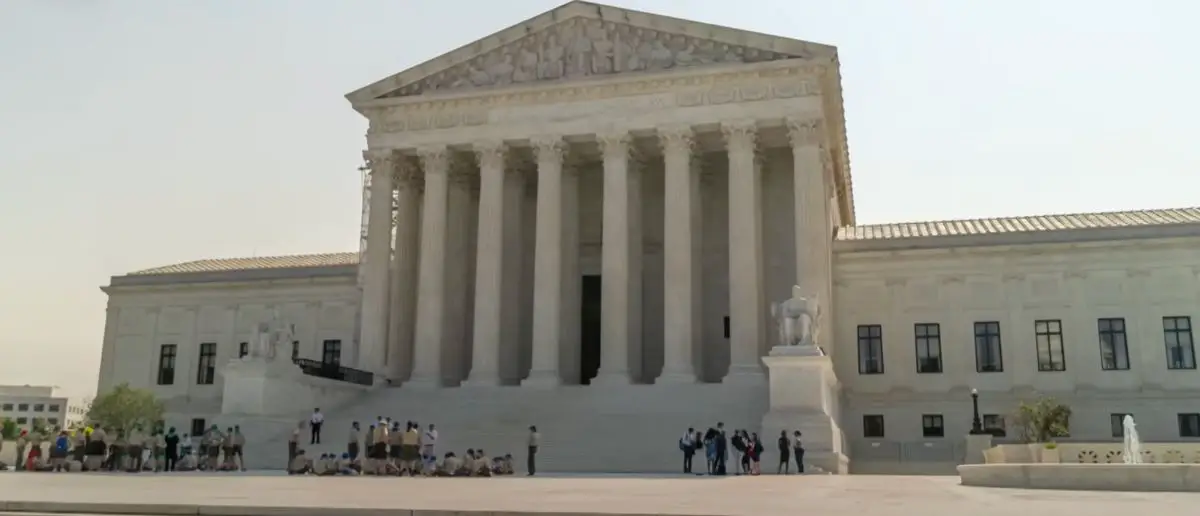
There’s no telling what kind of surprises may pop-up this October. But the Democrats sure weren’t expecting this.
Because the Supreme Court slapped the Biden-Harris administration with a game-changing loss.
The Supreme Court dealt a blow to the Biden administration on Monday, rejecting its attempt to create emergency exceptions to Texas’ strict abortion law.
The administration’s argument, led by the Department of Health and Human Services (HHS), claimed that federal law governing emergency care should override state law.
Specifically, the HHS argued that hospitals were required to perform abortions in cases where the mother’s life or health was at serious risk.
However, Texas fired back, accusing the federal government of cutting corners and bypassing proper procedures to push the policy through.
The 5th U.S. Circuit Court of Appeals sided with Texas, and in a brief order on Monday, the Supreme Court allowed that decision to stand. Notably, none of the justices commented on the ruling.
This decision marked the start of the Supreme Court’s new term, with the justices already diving into a range of cases.
On Monday, they heard oral arguments about delays in a state paying unemployment benefits and debated whether federal or state courts should handle a civil procedure dispute.
On Tuesday, the Court will take on a highly anticipated case challenging the Biden administration’s attempt to regulate privately manufactured firearms, such as those made from kits or partially finished gun receivers — an issue that has stirred significant national debate.
In a flurry of decisions announced Monday, the justices sent several gun-rights cases back to lower courts, instructing them to reconsider their rulings in light of this summer’s major decision affirming that the Second Amendment allows the government to deny gun rights to individuals deemed dangerous.
Another notable case returned to the lower courts involved the federal s*x offender registry law.
The justices instructed the court to take a fresh look at the case in light of a ruling that limits the deference judges must show to federal agencies.
The Texas abortion case stems from the Biden administration’s broader effort to revive national abortion protections after the Supreme Court’s landmark 2022 decision that overturned Roe v. Wade.
Following that ruling, HHS issued a directive requiring hospitals that receive federal funding to perform abortions in emergency situations under the Emergency Medical Treatment and Labor Act (EMTALA), even when state law prohibited it.
Texas challenged the directive, arguing that it overstepped what EMTALA actually required and skipped over essential procedural steps like the notice-and-comment period.
Both a trial court and the 5th U.S. Circuit Court of Appeals sided with Texas, leaving the state exempt from the HHS directive.
Pro-life advocates celebrated the Supreme Court’s decision. SBA Pro-Life America called it a “big win for mothers and babies nationwide,” and said it helped dispel the “harmful misinformation” surrounding state abortion restrictions.
Katie Glenn Daniel, the group’s state policy director, clarified, “The truth is clear: No state with strong pro-life laws prevents doctors from providing emergency care for expectant moms.”
This is the second time HHS’ EMTALA guidance has reached the Supreme Court. In their previous term, the justices took up a similar case from Montana, which also clashed with the Biden administration over its abortion restrictions.
However, after hearing oral arguments, the Court stepped back, deciding that the case needed more development in the lower courts before they could render a decision.
Stay tuned to the DC Daily Journal.





